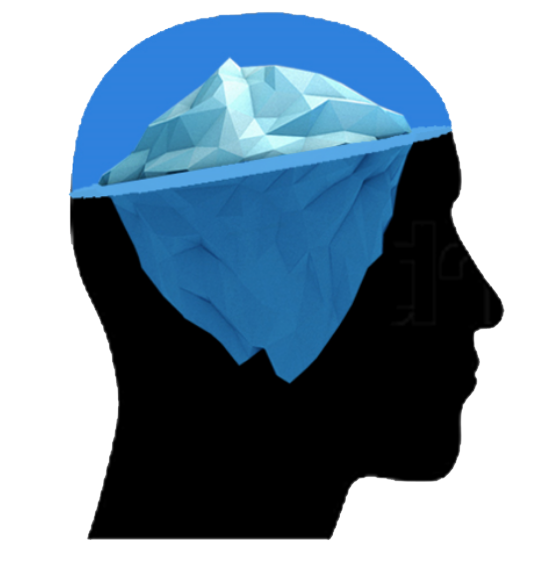Week Thirteen: Final Abstract and Works Cited
 |
| My research has shown that deja vu is a result of the manifestations of the unconscious mind. This phenomenon can only be treated using the conscious analysis of unconscious motivation and thought. |
My paper is finally finished!!! :) Here are my final draft abstract and works cited for my essay titled "Synchronizing the Unconscious Mind and False Recollection Events":
Abstract:
Over two-thirds of the world’s population has experienced déjà vu. Such a widespread phenomenon lacks a subjective definition, and classical science only explains the biological basis of déjà vu without addressing its variability in patients. Subjective science is important for explaining the déjà vu phenomenon because it helps scientists interpret the unconscious roots of false recollection events: suppressed memories and dreams. Carl Jung’s theory of synchronicity is applicable to the explanation of the déjà vu phenomenon and can be used to pose future treatment for persistent déjà vu patients. The anxiety and distress caused by déjà vu events create a positive feedback loop in the unconscious mind, fueling further creation of false memories from unconscious material. By tracing the unconscious causes of déjà vu, it is possible to consciously address the repressed thoughts that project onto daily life through false recollection. This way, the conscious mind may serve as the solution to the problems posed by Carl Jung in his theory of synchronicity.
Works Cited:
Adachi, N., Adachi, T., Kimura, M., Akanuma, N., Takekawa, Y., & Kato, M. (2003). “Demographic and Psychological Features of Déjà Vu Experiences in a Nonclinical Japanese Population.” The Journal of Nervous and Mental Disease, vol. 191, no. 4, 2003, pp. 242–247, https://doi.org/10.1097/01.NMD.0000061149.26296.DC
Adachi, N., Adachi, T., Takekawa, Y., Akanuma, N., Ito, M., Matsubara, R., Ikeda, H., Kimura, M. & Arai, H. “Déjà Vu Experiences in Patients with Schizophrenia.” Comprehensive Psychiatry, vol. 47, no. 5, Elsevier Inc, 2006, pp. 389–93, doi:10.1016/j.comppsych.2005.12.003.
“Carl Jung - The Power of the Unconscious and The Importance of Dreams.” YouTube, uploaded by Spiritual Mind, 5 Dec. 2018, www.youtube.com/watch?v=-6G9IWa3XiI.
Cleary, Anne M., and Alexander B. Claxton. “Déjà Vu: An Illusion of Prediction.” Psychological Science, vol. 29, no. 4, Apr. 2018, pp. 635–644, doi:10.1177/0956797617743018.
Forrer, Kurt. “Synchronicity: Did Jung Have It Right?” International Journal of Dream Research, vol. 8, no. 2, Oct. 2015, pp. 152–163. EBSCOhost, search.ebscohost.com/login.aspx?direct=true&db=aph&AN=111140906&site=ehost-live.
Forrer, Kurt. “The Dream as Posthypnotic Command.” Sleep and Hypnosis, vol. 19, no. 4, Yerkure Tanitim ve Yayincilik Hizmetleri A.S, 2017, pp. 83–88, doi:10.5350/Sleep.Hypn.2016.18.0126.
Jung, C. G. “Synchronicity: An Acausal Connecting Principle.” Synchronicity, Princeton University Press, 2015, pp. 1–2, doi:10.1515/9781400839162-003.
Lawson, Thomas T. “Synchronicity.” Carl Jung, Darwin of the Mind, 1st ed., Routledge, 2008, pp. 177–201, doi:10.4324/9780429472701-5.
Micali, Stefano. “The Repetition of a Singularity: Phenomenology of Déjà Vu.” Philosophy Today, vol. 62, no. 3, Summer 2018, pp. 897–1007. EBSCOhost, doi:10.5840/philtoday20181130243.
Mumoli, Laura, et al. “Validation Study of Italian Version of Inventory for Déjà Vu Experiences Assessment (I-IDEA): A Screening Tool to Detect Déjà Vu Phenomenon in Italian Healthy Individuals.” Behavioral Sciences, vol. 7, no. 3, MDPI AG, 2017, p. 50–, doi:10.3390/bs7030050.
O’Connor, Akira R., et al. “Novel Insights into False Recollection: A Model of Déjà Vécu.” Cognitive Neuropsychiatry, vol. 15, no. 1-3, Taylor & Francis Group, 2010, pp. 118–44, doi:10.1080/13546800903113071.
OWID. "Number of People Globally That Suffered from Select Mental Health or Substance Use Disorders as of 2017 (in Millions)." Statista, Statista Inc., 6 Aug 2019, https://www-statista-com.proxy.libraries.rutgers.edu/statistics/979869/number-of-people-with-mental-health-disorders-globally/
Smith, David Woodruff. "Phenomenology." The Stanford Encyclopedia of Philosophy (Summer 2018 Edition), Edward N. Zalta (ed.), https://plato.stanford.edu/archives/sum2018/entries/phenomenology.
Texas A&M University. "What causes déjà vu?." ScienceDaily. ScienceDaily, 13 April 2016, www.sciencedaily.com/releases/2016/04/160413113530.htm.
Wells, C., Moulin, C., Ethridge, P., Illman, N., Davies, E., & Zeman, A. (2014). Persistent psychogenic déjà vu: a case report. Journal of Medical Case Reports, 8(1), 414–414. https://doi.org/10.1186/1752-1947-8-414
Williams. Non-Designer’s Design Book, The. Pearson India, 2008.


Full-Service Addiction Treatment Services.
ReplyDeleteaccountability, and sobriety skills. Pennsylvania Based office of mental health and substance abuse services pa